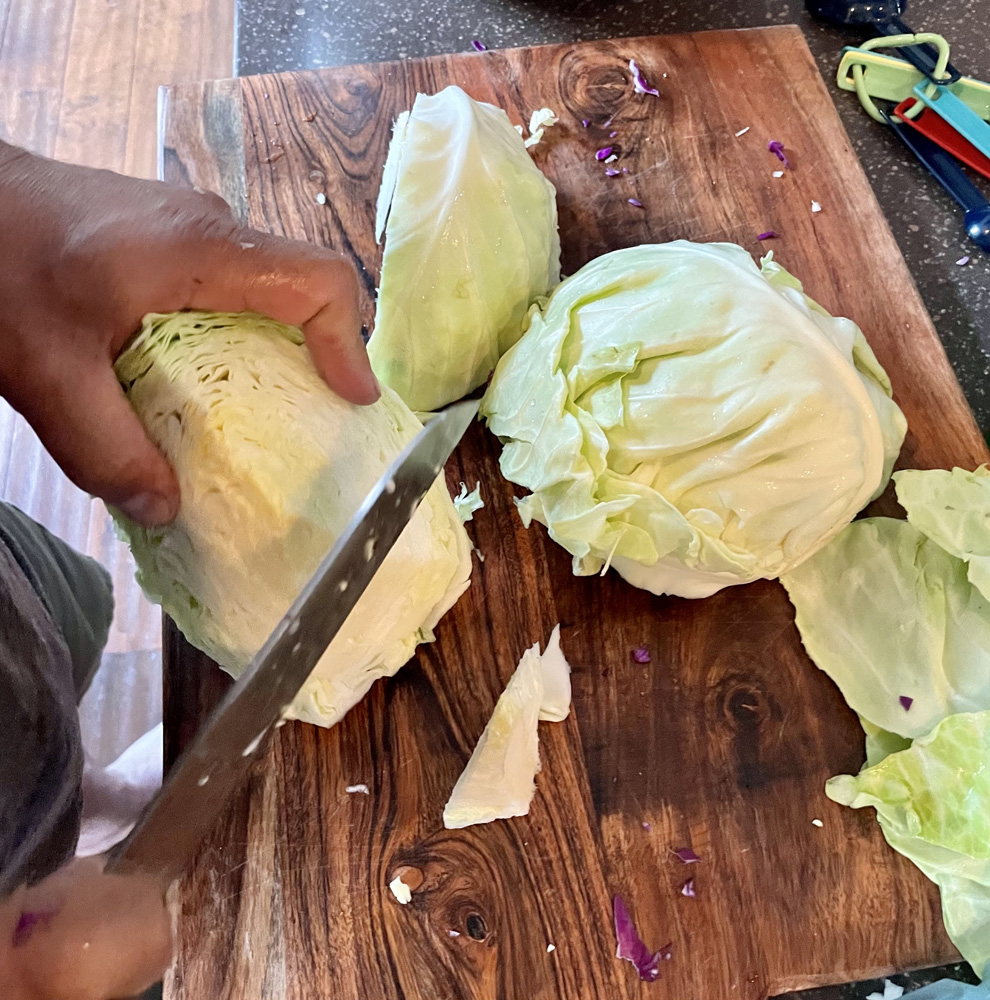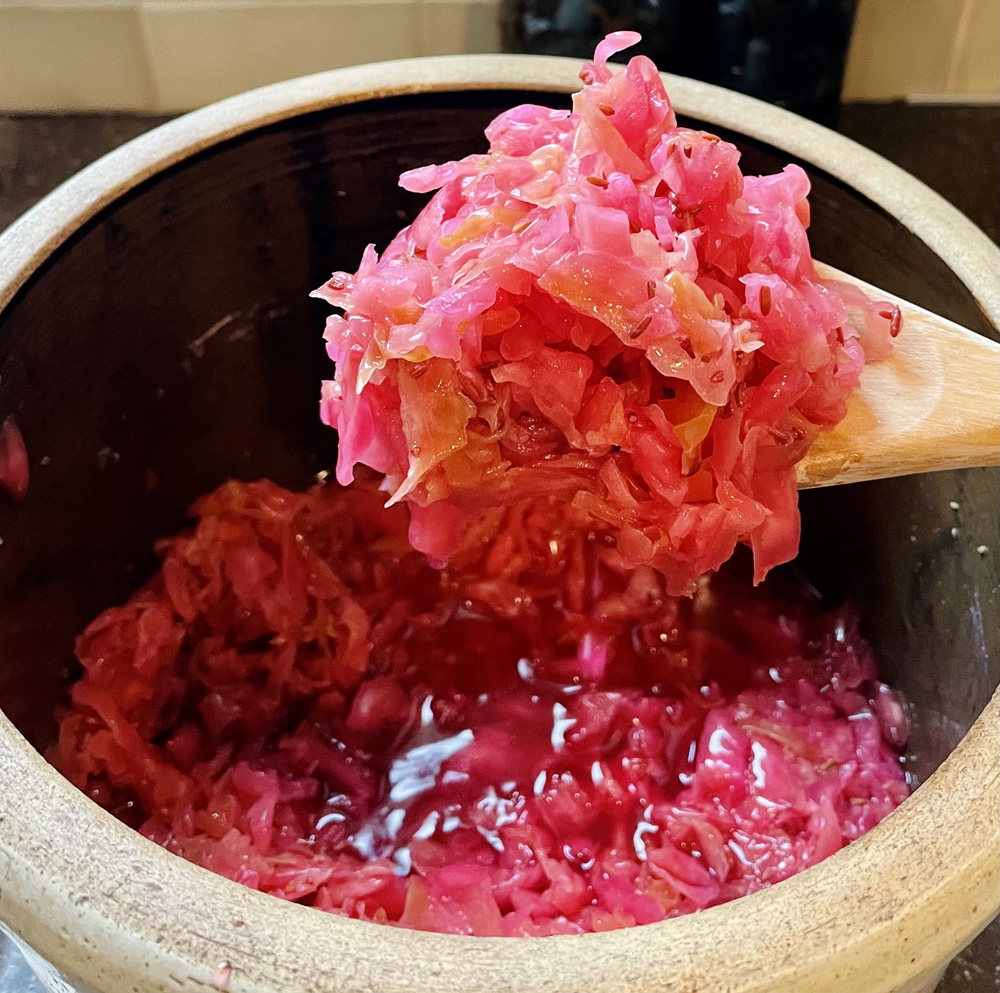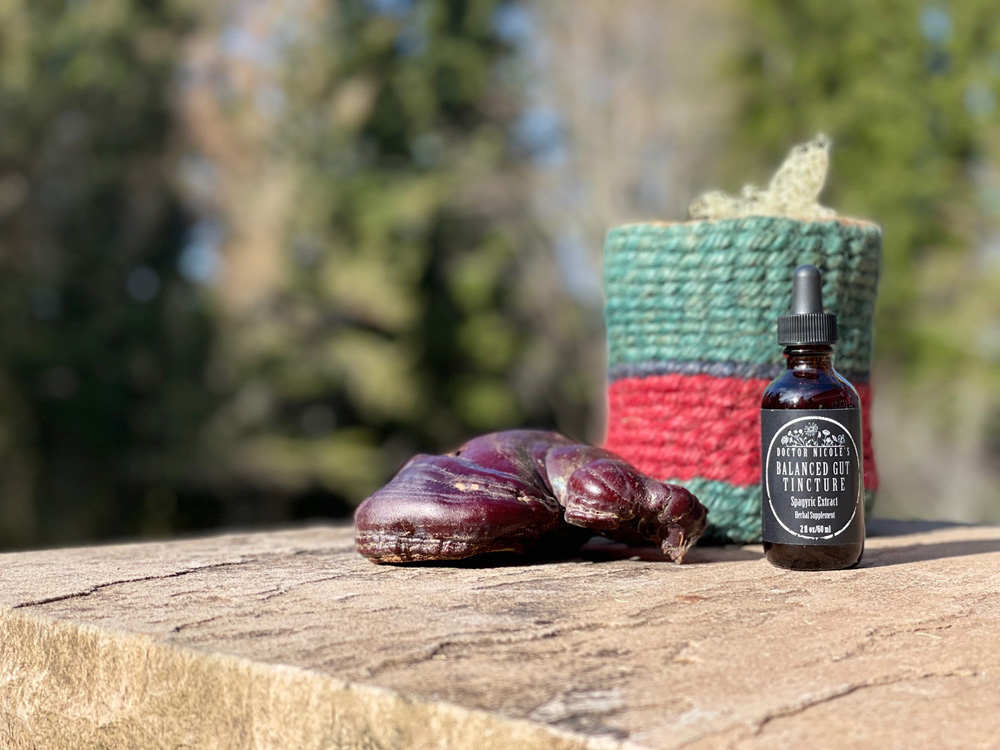Simple, Budget-Friendly, and Healthy
If you are seeking an inexpensive way to boost health, sauerkraut is for you! Easy to make and perfect for the budget-minded, a few simple ingredients can help to encourage not only a healthy microbiome, but also improve mood, immunity, and weight loss. Researchers believe it may also be the key to reducing stress, boosting memory and brain health, and lowering the risk of some types of cancer. With all these terrific health-promoting benefits, what’s not to love? Below we’ll dig deeper into the wonderful world of sauerkraut — including my favorite tools and a simple recipe!
What The Science Has to Say
While fermenting vegetables has been a popular food preservation method for a millennia, researchers have just begun to discover the impressive health impacts — some of which are quite surprising.
Did you know that the bacteria in your gut significantly influence your brain health and mood — for better or worse? It’s true! When we cultivate a healthy microbiome that is teeming with beneficial bacteria through our food and lifestyle choices, it positively impacts our mental (and physical) health. And one of the best ways to do this is to consume foods that are abundant in probiotics, such as sauerkraut. This is due to the gut-brain connection where bacteria in the gut send messages to the brain via the vagus nerve. Interestingly, this communication changes the very way our brain and nervous system functions and how we think.1,2,3 It also influences our stress response and memory. When there is an overabundance of bad bacteria and not enough of the good, we can suffer from obsessive-compulsive disorder, anxiety, depression, autism, and more.1,3,4,6
What’s more, probiotic-rich foods have been shown to have beneficial anti-inflammatory, immune, and glycemic properties.3,5 Because of this, probiotics are helpful for a range of health issues, including: autoimmune conditions, diabetes, heart disease, leaky gut syndrome, ulcerative colitis, IBS, food allergies, reducing cancer risk, arthritis, high blood pressure, eczema, UTIs, and more.8,9,10 That is quite the list of benefits for such a simple food as sauerkraut! Are you ready to give it a try? Here’s how to easily make your own at home.

Recipe. Sauerkraut. You will need: One head of cabbage, high-quality salt, 1-liter sized Bell canning jar with metal lid band and “Pickle Pipe” silicone lids by MasonTops or a sauerkraut crock (which is what I used here). .
Rinse the cabbage and set aside the outer leaves — you will use these later. For the remainder of the head, slice, chop, or shred it by hand or using a food processor. In a large bowl, massage one tablespoon Himalayan, non-iodized, or other high-quality sea salt into the cabbage for a few minutes until a brine begins to form. Pack the cabbage tightly into a clean 1-liter jar or crock. Make sure to press it down to remove any air pockets.
Pour the brine into the jar so that the cabbage is completely submerged. Take the remaining cabbage leaf and fit it on top of the brine/cabbage mixture, which will help to weigh down the shredded vegetables. Make sure there isn’t any air in the jar as this will allow harmful bacteria to grow.
If using a jar, remove the flat metal disk from your Bell jar lid and replace it with your Pickle Pipe silicone insert or another airlock fermentation lid. Screw the lid on securely and keep your sealed jar at room temperature away from direct sunlight for 1-4 weeks. This method has very little smell during fermentation. You can also use a sauerkraut crock with weight for larger batches. The longer you ferment your sauerkraut, the more tart it will become.
For variety, you can also add garlic cloves, fresh dill, caraway seeds, shredded carrot, daikon, or horseradish — even a few juniper berries. Get creative!
Herbal Support
As we have seen, probiotic-rich foods such as sauerkraut can greatly improve our overall health. However, many of us have developed leaky gut from a diet high in refined sugar, processed foods, and unhealthy fats, along with exposure to environmental toxins and pesticides. While eating more fermented foods can certainly help to correct the issue, sometimes we need a more immediate approach. This is where my Balanced Gut Blend comes in. It is formulated with concentrated extracts of reishi, turkey tail, and lion’s mane medicinal mushrooms, along with plantain, slippery elm, and marshmallow to calm and repair intestinal inflammation and leaky gut and restore healthy function.
Interested in learning more? Visit the apothecary today!
Nicole Apelian
Nicole’s Apothecary Products in this Post
References
- Wang, H., Lee, I. S., Braun, C., & Enck, P. (2016). Effect of Probiotics on Central Nervous System Functions in Animals and Humans: A Systematic Review. Journal of neurogastroenterology and motility, 22(4), 589–605. https://doi.org/10.5056/jnm16018
- Dinan, T. G., Stanton, C., & Cryan, J. F. (2013). Psychobiotics: a novel class of psychotropic. Biological psychiatry, 74(10), 720–726. https://doi.org/10.1016/j.biopsych.2013.05.001
- Selhub, E. M., Logan, A. C., & Bested, A. C. (2014). Fermented foods, microbiota, and mental health: ancient practice meets nutritional psychiatry. Journal of physiological anthropology, 33(1), 2. https://doi.org/10.1186/1880-6805-33-2
- Jung, I. H., Jung, M. A., Kim, E. J., Han, M. J., & Kim, D. H. (2012). Lactobacillus pentosus var. plantarum C29 protects scopolamine-induced memory deficit in mice. Journal of applied microbiology, 113(6), 1498–1506. https://doi.org/10.1111/j.1365-2672.2012.05437.x






